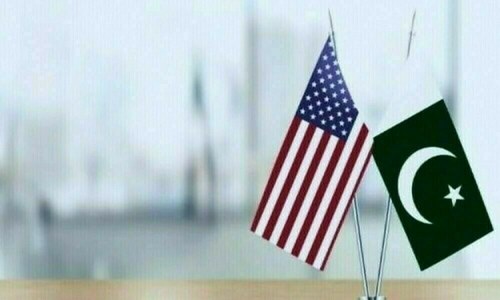Pakistan Commences Trade Tariff Negotiations with the United States
Pakistan has officially started discussions with American officials regarding the recently implemented reciprocal tariffs by Washington, which affect several trading partners, including Pakistan. This move marks a significant step on the economic landscape.
Khurram Schehzad, an advisor to Pakistan’s Finance Minister, mentioned that Federal Finance Minister Muhammad Aurangzeb engaged in a dialogue with Ambassador Jamieson Greer, the United States Trade Representative, via a conference call. They exchanged perspectives on the reciprocal tariff issue, with a mutual agreement to proceed with detailed technical discussions in the upcoming weeks.
These discussions follow President Donald Trump’s announcement on April 4, which introduced broad import taxes on goods entering the U.S. The new policy entails a 29 percent reciprocal tariff on products originating from Pakistan. This action is part of a wider global tariff strategy impacting more than 185 countries and territories.
The announcement by the U.S. President has raised concerns among Pakistani exporters, who are worried that it could potentially disrupt trade activities with U.S. markets and negatively impact export competitiveness. The Pakistani government has responded promptly to address these concerns with U.S. authorities, seeking potential relief or adjustments.
Khurram Schehzad also shared on his X account that formal negotiations began through a telephonic conference between Finance Minister Aurangzeb and Ambassador Jamieson Greer.
Quote from Khurram Schehzad’s X Account:
“Pakistan’s formal negotiations on US Reciprocal tariffs kick-started between Muhammad Aurangzeb, Pakistan’s Finance Minister and Ambassador Jamieson Greer, United States Trade Representative through a telephonic/conference call on 30th May, 2025”.
He further noted that both parties exchanged viewpoints constructively, agreeing to continue detailed technical discussions soon. Both parties expressed optimism about the progress of the negotiations and aimed for a swift, successful conclusion.
Under the new trade policy, Pakistan is among several nations facing considerable duties, including India (26 percent), China (145 percent), the European Union (20 percent), and Saudi Arabia, Qatar, and Afghanistan (10 percent each).



Comments (0)
No comments yet. Be the first to comment!
Leave a Comment